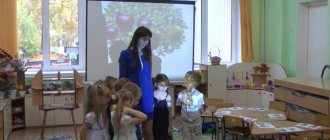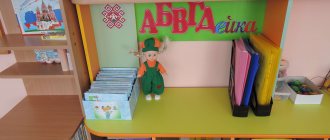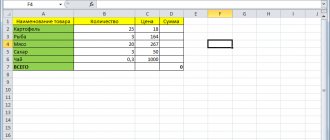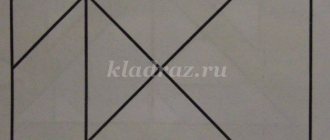Work plan of a teacher-mentor with a young specialist material on the topic
I APPROVED
Director of MAOU "Secondary School No. 3"
city of Kogalym
______________V.M. Marenyuk
"01" September 2020
Work plan
teacher-mentor, primary school teacher Alla Fedorovna Milechenko
with a young specialist, primary school teacher Natalya Mikhailovna Nikiforova
municipal autonomous educational institution
"Secondary school No. 3" of the city of Kogalym
for the 2017-2018 academic year
The goal is to create organizational and methodological conditions for the successful adaptation of a young specialist in a modern school environment.
Tasks:
- help a young teacher adapt to the team;
- determine the level of professional training;
- identify difficulties in teaching practice and provide methodological assistance;
- create conditions for the development of professional skills of a young teacher, including the skills of using various means, forms of training and education, the psychology of communication with schoolchildren and their parents;
- develop the needs of a young teacher for self-education and professional self-improvement.
Contents of activity:
1. Diagnosis of a young specialist’s difficulties and selection of forms of assistance based on an analysis of his needs.
2. Attending the lessons of a young specialist and mutual visits.
3. Planning and analysis of activities.
4. Assisting a young specialist in increasing the efficiency of organizing educational work.
5. Familiarization with the main directions and forms of enhancing the cognitive, research activities of students during extracurricular time (olympiads, shows, subject weeks, etc.).
6. Creating conditions for improving the pedagogical skills of a young teacher.
7. Demonstration of experience in successful teaching activities by experienced teachers.
8. Organization of monitoring of activity efficiency.
Expected results:
- successful adaptation of a novice teacher to the institution;
- activation of practical, individual, independent teaching skills;
- increasing the professional competence of a young teacher in matters of pedagogy and psychology;
- ensuring continuous improvement of teaching quality;
- improving work methods to develop creative and independent activities of students;
- use of innovative pedagogical technologies in the work of beginning teachers.
| Planning and organizing work on the subject | Planning and organization of educational work | Working with school documentation | Monitoring the activities of a young specialist |
| SEPTEMBER | |||
|
educational work with the class and parents for the 2017-2018 academic year.
“Features of drawing up a plan for educational work.”
|
|
|
| OCTOBER | |||
|
|
|
|
| NOVEMBER DECEMBER | |||
|
|
|
|
| JANUARY | |||
|
|
|
|
| FEBRUARY | |||
|
|
|
|
| MARCH | |||
|
|
|
|
| APRIL | |||
|
|
|
|
| MAY | |||
|
|
|
|
Primary school teacher of MAOU "Secondary School No. 3" of the city of Kogalym ______________________ /Milenchenko A.F./
System of teacher-mentor work with young specialists
Mentoring involves an ongoing dialogue between an experienced teacher and a novice teacher. The organization of mentoring is gradual. It includes the formation and development of functional and personal (design, organizational, constructive, analytical) components of a teacher’s activity.
In particular, there are two stages of this work:
1. Adaptation stage.
The central link in organizing assistance to a young teacher is preliminary work with him.
There is no need to lecture him or conduct theoretical classes. He still has fresh knowledge gained at the institute. A young teacher needs practical advice. Therefore, the mentor first of all needs to draw the attention of the young specialist to the requirements for organizing the educational process, requirements for maintaining school records, forms and methods of organizing extracurricular activities of students.
The first step in adaptation is to familiarize the teacher with regulatory documents, teaching materials on the subject, the library, and classrooms.
Psychologists and social educators introduce beginners to the classroom groups in which they will work, and characterize the classes and individual students. Deputy directors introduce the structure (plans, schedules, graphs) of educational, methodological, educational work at the school, documentation, basic requirements for its management, and the scope of his duties and powers is determined.
Working with young specialists will be most effective if you prepare various reminders.
These may include a methodological glossary, a methodological piggy bank for determining the type of lesson, an effective choice of work with students, analysis and self-analysis of the lesson, a memo from the class teacher on how to properly organize work with parents, methodological recommendations for holding parent meetings, extracurricular activities, psychological exercises for development of internal means of regulation, etc.
Before meeting with a young specialist, the mentor must prepare all information materials that should be given to the young specialist on the first day of work.
During the entire adaptation period, the mentor must regularly conduct classes with the young specialist.
The topics of the classes consist of topical issues of professional activity, without knowledge of which the process of becoming a young specialist will be imperfect:
- rights and responsibilities of a teacher;
- personal and professional qualities of a modern school teacher;
- professional pedagogical culture and ways of its formation;
- pedagogical ethics;
- maintaining school records;
- types and types of training sessions;
- classic and non-standard lessons: advantages and disadvantages;
- psychological support of the educational process;
- objective assessment of students' knowledge;
- managing the development of students' creative abilities;
- a personality-oriented approach to the educational process;
- analysis and self-analysis of the teacher’s activities, etc.
Then begins the daily painstaking work of the administration and methodologist-mentor to develop and develop the personality of the young teacher.
And it begins, as a rule, with an interview, with filling out diagnostic materials to identify problem areas in the professional activity of a young specialist. There are many types of questionnaires for teachers, used depending on the purpose. It is advisable to conduct a questionnaire to study the needs of a young teacher in modeling, implementation and reflection of his teaching activities.
For this purpose, the novice teacher is invited to fill out special diagnostic questionnaires, on the basis of which an individual plan-program for his professional formation, development and self-improvement is subsequently built. A teacher-mentor and educational psychologist help the young specialist build his own program of self-development and self-improvement. When drawing up a program, it is necessary to take into account a number of factors: conditions, personal qualities of the young specialist and mentor, the presence or absence of class management for the adaptation period.
For further more effective work, the novice specialist is offered various recommendations and reminders on organizing and conducting lessons, which are previously discussed with the teacher-mentor, educational psychologist, and school methodologist. Along with recommendations for drawing up thematic planning and eliminating gaps in knowledge of teaching methods, it is very useful to warn a young colleague against common common mistakes of inexperienced teachers, to carry out the so-called propaedeutics. For this purpose, the young teacher is offered a memo “Classification of errors made by a beginning teacher and ways to eliminate them.”
Theoretically, a well-versed young specialist who has excellent knowledge of his subject may encounter psychological problems of a personal or behavioral nature.
Much attention should be paid to issues of pedagogical ethics and the development of pedagogical technology. It is not easy to learn the art of the first reaction, communication with students, and patience. Under any circumstances, the teacher should not raise his voice or lose face. The success of a young teacher often depends on “trifles” - clothes, voice, gestures, random remarks. A novice teacher needs to learn how to stand, how to sit, how to get up from a chair, from a table, how to raise your voice, smile, how to look.
If problems arise in the work of a novice teacher and his mistakes in communicating with students, individual consultations are held with an educational psychologist, during which every step of the young specialist is analyzed. It is necessary to offer young teachers various psychological and pedagogical situations with the choice of a teacher’s position and discuss these situations with a psychologist to form an individual style of creative activity. Along with consultations with a psychologist, the novice teacher is offered advice memos, order memos and commandment memos, which he must learn as the “Our Father” for the rest of his teaching life and strictly follow them.
2. Main stage.
Work is being carried out on the topic of self-education, methodological work is being planned, an individual style of activity is being developed, and the professional skills of the young teacher are being adjusted. The training of young teachers cannot be effective without demonstration lessons from subject teachers. To assist young teachers in improving their professional competence, the Deputy Director for Academic Affairs draws up a program of open lessons, identifies “pain points” in the teaching activities of beginning teachers in order to prevent typical mistakes in teaching and form stable fundamental positions in conducting a lesson.
At this stage, efforts are aimed at activating and consolidating the motives of young teachers’ activities, mastering effective ways to overcome difficulties that arise during the work.
The difficulties of a young specialist are revealed during visits to his lessons by the administration and more experienced colleagues. It is necessary to tactfully advise him on how best to organize work on this or that type of speech activity, how to correctly organize the change of types. Modern young professionals are computer literate and sometimes it is enough just to name a topic they should work on or indicate a website where they can find the necessary information for a lesson or event.
Innovative forms and methods of working with young teachers
Forms of methodological work with young specialists are selected depending on the purpose of the impact. The specialist is trained in regulatory activities with the help of instructions.
The assimilation of confident correct behavior is carried out through playing (role-playing games, problem-based business games, psychological training, analysis of pedagogical situations). Listening to or playing a practical situation develops the ability to put oneself in the situation of an outside observer, which creates conditions for conducting a more objective analysis of activity, necessary for its correction already at the very first stage of mastering the profession.
Individual and group consultations are also a means of obtaining prompt assistance. For a group meeting, it is recommended to determine the topic in advance and select questions that interest listeners. The most effective way to conduct consultations is in the form of a “round table” or “brainstorming”. Among the most actively used forms is attending classes. An effective form of organizing assistance to young teachers is a master class, in which a teacher of the highest category shares his experience in introducing new technologies into practice. The purpose of the master class is not only to tell, but also to show how it is done. The theoretical part reveals the basics of pedagogical technology. The practical part is conducting a lesson, where the most complex elements of the methodology, techniques and stages of pedagogical technology are practiced.
There are numerous traditional forms of work into which elements of novelty can always be introduced. You should not give up pedagogical readings and lectures. Currently, webinars are being held by the publishing houses “Prosveshcheniye” and “Ventana-Graf”. Having received very valuable information at the webinar, it is useful to discuss it together at a seminar, round table meeting, or methodological meeting.
Every year the school holds a subject-based methodological ten-day period, which provides both wide scope for creativity and for familiarization with new material. During the methodological decade, it is necessary to organize fairs of pedagogical ideas, creative pedagogical competitions, “pedagogical ring”, “pedagogical atelier” or “pedagogical workshops”, “brainstorming”.
The school holds workshops every year and young professionals are expected to attend as many lessons as possible from their senior colleagues. A visit to the creative laboratory of an experienced teacher and working with materials from generalized teaching experience can serve as a clear example of practical activity for a young specialist. A teacher studies all his life, and self-education has been and remains an invaluable form of developing a teacher’s personality.
Searching for materials on a specific topic followed by speaking at meetings of methodological associations and scientific and practical conferences not only helps to increase the intellectual level of a young specialist, but also develops public speaking skills in front of a competent audience. A young specialist simply needs to compile a portfolio, the main goal of which is to analyze and present significant professional results and ensure monitoring of the teacher’s professional growth.
The portfolio allows not only to take into account the results achieved by the teacher in teaching and education, but also to trace the creative and self-educational activities of the teacher, analyze the strategy and tactics of professional behavior, and evaluate the professionalism of the teacher. In order for the adaptation of a young specialist to be more effective and painless, it is necessary to include him in a “creative microgroup”, in a “quality circle” or in a temporary research team.
Work plan for a mentor-educator with a young specialist
Ekaterina Chasovskikh
Work plan for a mentor-educator with a young specialist
PERSPECTIVE WORK PLAN FOR A MENTOR – TEACHER
(Chasovskikh Ekaterina Alexandrovna)
with a young specialist
(Zotova Olga Vladimirovna)
for the 2020 -2020 academic year
Goal of work : development of professional skills of a young specialist .
Tasks:
— providing methodological assistance to a young specialist in increasing the level of organization of educational activities;
— study of regulatory documents;
— assistance in maintaining the teacher’s documentation (long-term and calendar plan for educational work , self-education plan , children’s attendance report card for the kindergarten group, information about children, monitoring, etc.);
- application of forms and methods in working with children ;
— organization of educational activities, assistance in setting goals and objectives;
— the use of health-saving technologies during non-criminal activities and other sensitive moments;
— mechanism for using didactic and visual material;
— in-depth study of innovative technologies;
— general issues of organizing work with parents ( planning work with parents , holding parent meetings, etc.)
The content of the work :
September:
1. Familiarity with the normative legal framework of the institution.
Study of documents: Law on Education, Federal State Educational Standard, sanitary and epidemiological rules and regulations for preschool educational institutions;
— study of the goals and objectives of the annual plan ;
— structure of long-term calendar planning ;
— structure of complex thematic planning .
- introduce various instructions in kindergarten, help to understand the seriousness of their implementation.
2. Monitoring of child development. Study of types of monitoring, forms of its implementation, selection of diagnostic material.
3. Assistance in planning the educational process in kindergarten
4. Study of all types of planning (prospective, daily, calendar, selection of pedagogical literature)
October:
1. Preparation and maintenance of documentation in the group. Check documentation, discuss, give recommendations on documentation.
2. Types and organization of routine moments in kindergarten. Viewing by the young specialist of the regime moments , answers to the questions of the young specialist .
4. A mentor’s to the NOD in order to identify professional difficulties in a young specialist and jointly determine ways to eliminate them.
November:
1. Methodology for holding a holiday in kindergarten “Hello Autumn!”
Participation in preparations for the autumn holiday, viewing the event, discussing the holiday.
2. Self-education of the teacher. Choosing a methodological topic, writing plan for the next academic year.
December:
1. Organization of educational activities. Viewing by a young specialist , discussion of tasks, technologies and effectiveness.
2. Forms of interaction with the family (consultations, selection of literature for study, joint planning of work with parents .
3. Organization of preparation of children for the holiday and pedagogical position during the New Year
.
4. Assistance in maintaining a portfolio.
January:
The mentor attends classes to identify professional difficulties. During the academic year, consultations, viewing, discussion.
2. The use of various technologies in the educational activities of children. Consultations, advice on the advisability of their use.
February:
1. The main problems in the teaching activity of a young specialist . Consultation and answers to questions of interest.
2. Developmental environment in the group. Discussion (principles of construction, presence of play areas, their equipment, change of material.
March:
1. Informing parents about the life of children in kindergarten. Consultation on the rules for designing parent corners, movement folders, availability of material, forms of their design
2. Organization of preparation of children for the holiday and pedagogical position during the holiday “Holiday of Our Mothers”
.
April:
1. Observation of a young specialist during his communication with parents of students. Conversation.
2. Visit to GCD. Discussion.
May:
1. Final monitoring by educational areas. Study of monitoring results and their discussion.
2. Drawing up an analytical report of a mentor with a young specialist for the 2020 – 2020 academic year. Discussion of results and plans for the next academic year.




